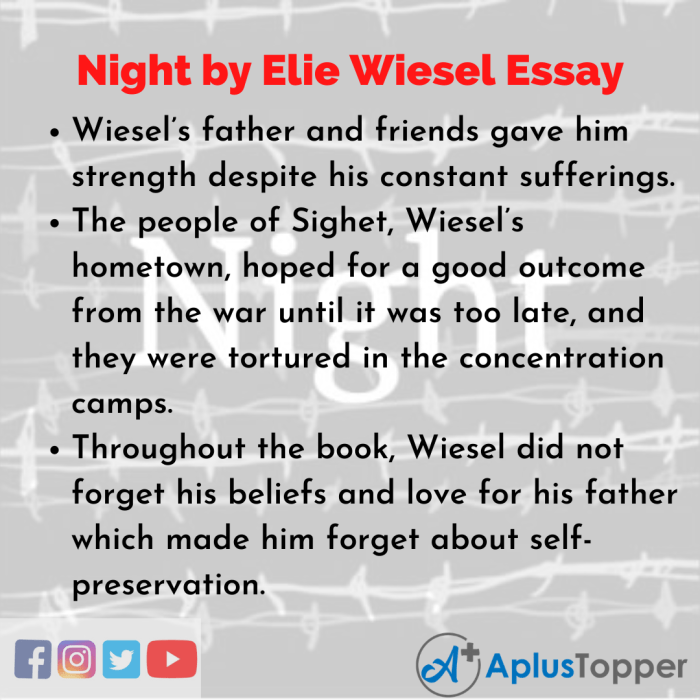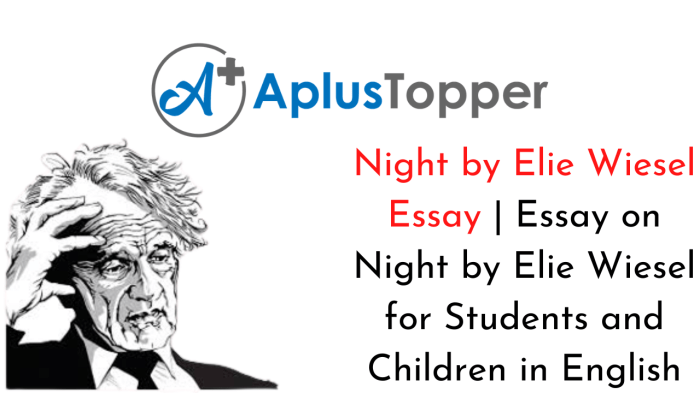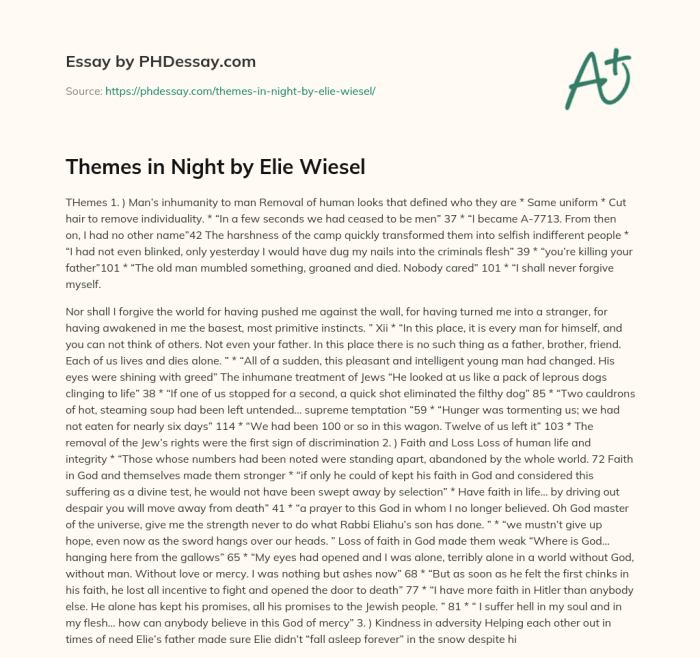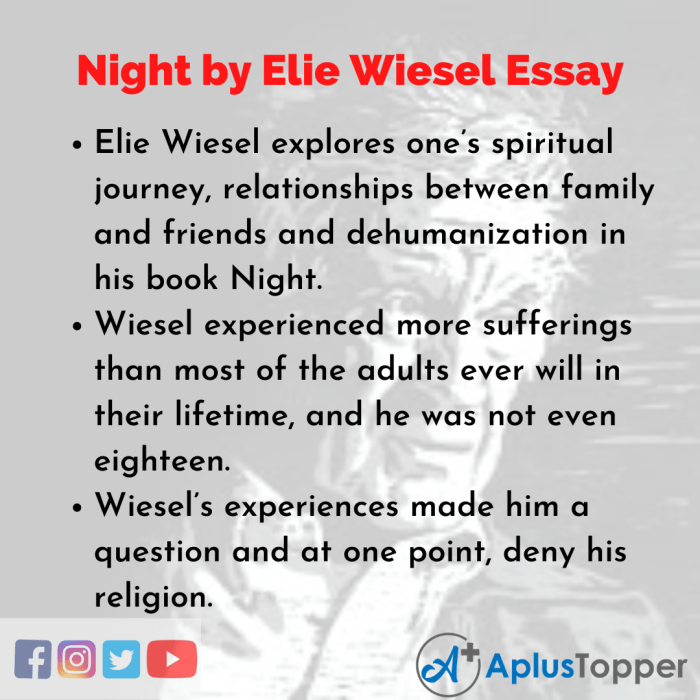Essay on the book night by elie wiesel – In his profound and unforgettable memoir, Night, Elie Wiesel recounts his harrowing experiences as a Jewish teenager imprisoned in Nazi concentration camps during the Holocaust. This essay delves into the depths of Wiesel’s work, examining the central themes, character development, historical context, and literary devices employed to convey the unspeakable horrors and profound reflections on the human condition.
Thematic Analysis

Nightexplores profound themes that resonate deeply with readers. Faith, suffering, and survival form the core of the narrative, as Eliezer grapples with the horrors of the Holocaust.
Wiesel portrays the struggle of maintaining faith in the face of unimaginable atrocities. Eliezer’s faith is tested as he witnesses the systematic dehumanization and senseless cruelty of the Nazi regime.
Suffering is an omnipresent force in Night. Eliezer endures physical, emotional, and spiritual torment. The book exposes the brutality of the concentration camps, where prisoners are subjected to starvation, disease, and unimaginable acts of violence.
Despite the overwhelming suffering, Wiesel also highlights the resilience of the human spirit. Eliezer’s determination to survive becomes a symbol of hope and resistance. Through his resilience, he finds a way to endure the horrors of the Holocaust and emerge with a newfound appreciation for life.
Character Analysis

Eliezer, Essay on the book night by elie wiesel
Eliezer is the central character of Night, a young Jewish boy who is deported to Auschwitz-Birkenau with his family. He undergoes a profound transformation throughout the novel, as he witnesses the horrors of the Holocaust.
Eliezer’s experiences in the concentration camps shape his character in several ways. He loses his faith in God and humanity, and becomes increasingly isolated and withdrawn. However, he also develops a deep sense of resilience and determination to survive.
Eliezer’s character is a complex and tragic one. He is a victim of the Holocaust, but he also emerges as a symbol of hope and survival.
Historical Context

The Holocaust and Nazi Concentration Camps
Nightis set against the backdrop of the Holocaust, one of the darkest chapters in human history. The Nazi regime systematically exterminated millions of Jews, as well as other minority groups, during World War II.
Nazi concentration camps were central to the Holocaust. These camps were designed to imprison, torture, and murder millions of people. Prisoners were subjected to unimaginable horrors, including starvation, disease, and forced labor.
The historical context of the Holocaust is essential to understanding Night. Wiesel’s novel provides a firsthand account of the atrocities committed during this horrific period.
Literary Analysis
Symbolism
Wiesel uses symbolism extensively in Nightto convey the horrors of the Holocaust and the human experience.
- The night:The night represents the darkness and despair of the Holocaust. It is a time of suffering and loss.
- The fire:The fire represents the destructive power of the Holocaust. It is a symbol of the burning of Jewish homes and synagogues, and the mass murder of Jews.
- The bread:The bread represents the hope and sustenance that keeps Eliezer alive during his time in the concentration camps.
Personal Connections: Essay On The Book Night By Elie Wiesel

Nighthas the power to evoke empathy, understanding, and reflection on the human experience. Readers can connect with Eliezer’s story on a personal level, as they grapple with the themes of faith, suffering, and survival.
The book encourages readers to confront the horrors of the Holocaust and to learn from the past. It is a powerful reminder of the importance of tolerance, compassion, and human dignity.
FAQ Corner
What is the main theme of Night by Elie Wiesel?
The central theme of Night is the struggle for faith and the search for meaning in the face of unimaginable suffering and evil.
How does Wiesel use literary devices to enhance the impact of Night?
Wiesel employs symbolism, metaphor, and irony to create a vivid and haunting narrative that conveys the horrors of the Holocaust and its profound impact on the human psyche.
What is the significance of the title Night?
The title Night symbolizes the darkness and despair that enveloped the victims of the Holocaust, as well as the spiritual and existential darkness that Wiesel grapples with throughout the narrative.